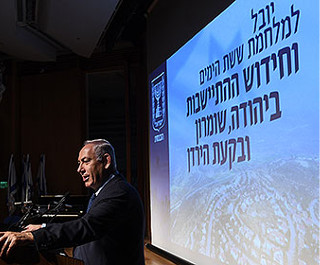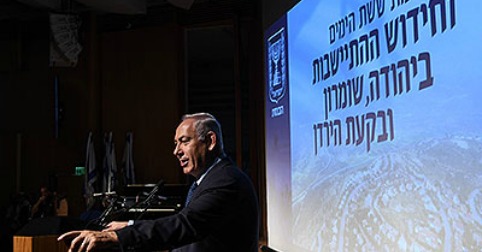
Update: this action, now closed, ran in August 2018.
President Trump is again sending his two Middle East envoys, Jared Kushner and Jason Greenblatt, together with Deputy National Security Adviser Dina Powell, to the region.
The three will meet with Israeli and Palestinian leaders to explore prospects for resuming peace talks.
In past meetings, Trump and his aides reportedly criticized Palestinian President Mahmoud Abbas and his government for hate speech and incitement. He also asked Prime Minister Netanyahu to “hold back on settlements,” but seems to have done very little to get Netanyahu to restrain West Bank settlement activity and other anti-peace actions. Indeed, Netanyahu and his right-wing coalition have scoffed at Trump’s call and plowed ahead with the settlement enterprise.
If the Trump Administration is serious about facilitating peace, it must call out Prime Minister Benjamin Netanyahu and his government for their share in hindering peace efforts.
Among their anti-peace actions, here are the top ten:
- Dramatically increasing settlement planning. There has been an 85% increase in plans that the government of Israel advanced for settlement construction in the first half of 2017, compared to 2016.
- Facilitating a major surge in settlement construction. According to data published by Israel’s Central Bureau of Statistics, there has been a 70% increase in construction starts in West Bank settlements between April 2016 and March 2017 compared to the parallel period the year before.
- Endorsing the construction of Amichai. This is the first new “official” (government-sanctioned) settlement since 1992. Amichai serves the settlers of Amona, an outpost built illegally by West Bank settlers, without government approval, which was dismantled by order of Israel’s Supreme Court because the settlers built it on privately owned Palestinian land.
- Allowing construction of new illegal outposts in the West Bank. This violates the Netanyahu government’s own policy of forbidding the creation of new outposts and not retroactively legalizing existing ones.
- Launching a major settlement drive in East Jerusalem. This includes expanding existing settlements and building new ones in the heart of Palestinian neighborhoods. The plan for a large settlement – 1,800 housing units – in the Palestinian neighborhood of Sheikh Jarrah is a key part of this effort.
- Allowing settlers to dispossess Palestinian families from East Jerusalem homes. This has occurred in East Jerusalem’s Sheikh Jarrah and Silwan neighborhoods, as settlers attempt to take over these homes.
- Failing to evict settlers in Hebron from the Abu Rajab House. Israeli Civil Administration ruled against settlers’ claim that the settlers had purchased the home (which they call “Beit HaMachpela”) from its Palestinian owner. However, the government has yet to force the removal of settlers from the property they hope to convert into a new settlement in this highly volatile city.
- Endorsing a Knesset bill that would expand Jerusalem’s municipal borders. The bill purports to include major settlements surrounding the city, including the large settlement of Maale Adumim, Givat Ze’ev, Beitar Illit and Efrat. This measure would annex these settlements to Jerusalem, but would not (yet) bring them under full Israeli sovereignty. Netanyahu last month indicated that he endorses this bill.
- Making and tolerating public statements that are antithetical to peace or incite hatred. Netanyahu has vowed that “no (settler) will be uprooted from his home” under a future peace agreement. He has also failed to condemn vile and indefensible statements by members of his cabinet or of Likud MKs. These include MK Oren Hazan calling Palestinians “morons” and “nothings” and repeatedly stating, from the podium of the Knesset, that “there is no Palestinian people.”
- Recklessly alienating Jordan’s government and people. Netanyahu’s ostentatious public embrace of an Israeli embassy security officer, who shot dead two Jordanian civilians after one of them allegedly stabbed him with a screwdriver, deeply embarrassed Jordan’s King Abdullah and angered Jordanians. The King had defied Jordanian public opinion in allowing the officer to return to Israel. Abdullah and the Jordanian people are key allies for advancing Israeli-Palestinian peace.
Palestinian leaders can definitely do more to advance peace, but Prime Minister Netanyahu and members of his cabinet and coalition need to do their share. We call on the Trump administration to demand that.
